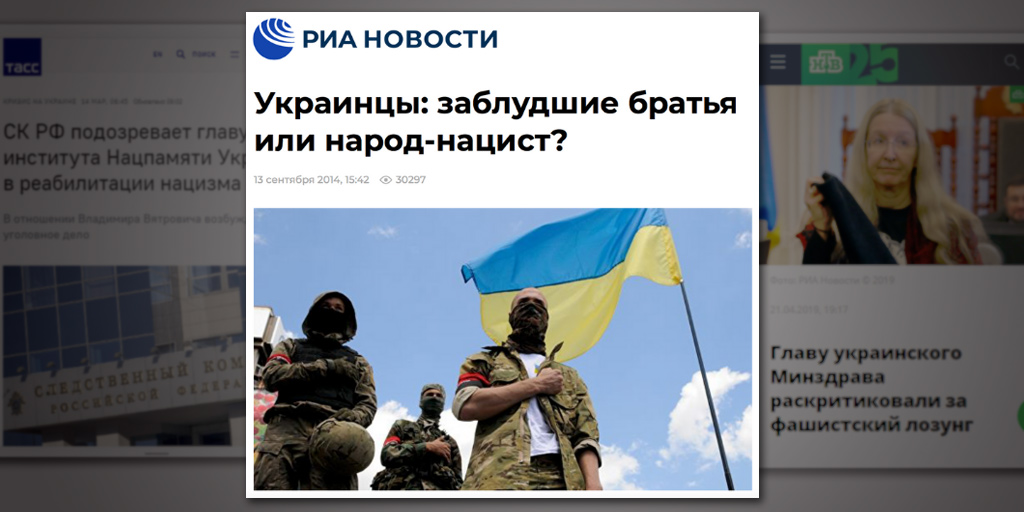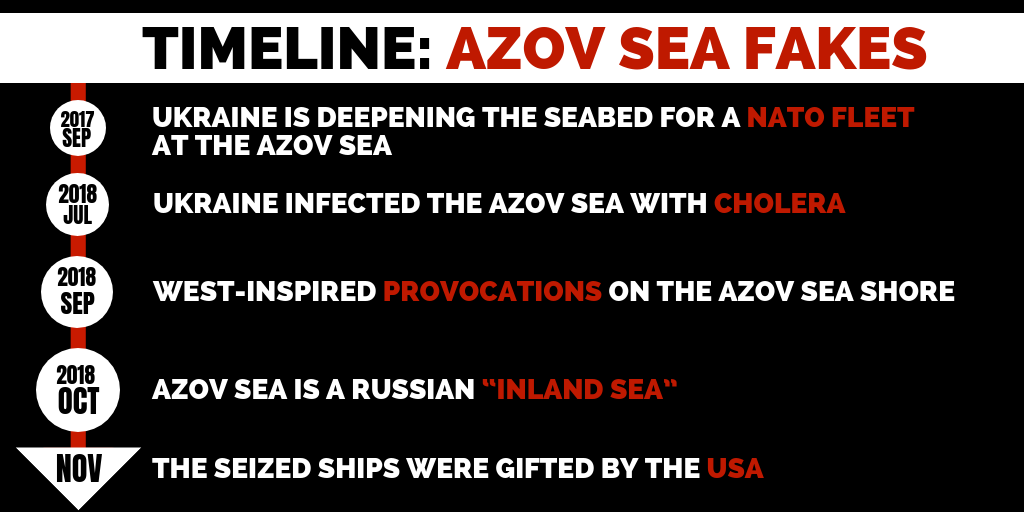Since the onset of the February invasion, both the West and the Kremlin were then taken aback by Ukraine's successes, not only on the battlefield.
In particular, information warfare has long been considered Moscow's turf. And yet on this front, Russia suffered defeats even before the invasion began.
The efforts by the US intelligence services uncovered Russian plans virtually in real-time, denying Putin any Gliwice-like casus belli.
During the first days of the invasion, Russia lost the initiative completely. President Zelensky and Ukraine's leadership managed to rally the domestic population, but also win over the Western public.
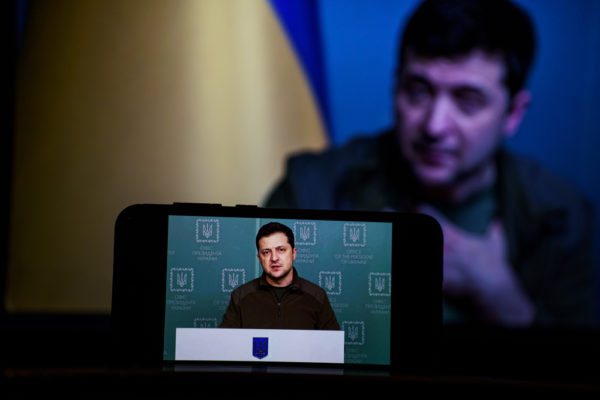
The uncovered brutalities in Bucha, Mariupol, and elsewhere dealt another blow to Russia's public image.
According to Oksana Poluliakh, a fact-checker from StopFake.org, the unfavorable situation forced Moscow into a new strategy.
"Russia's defeat in the information war in the first days of the war is directly related to the real situation on the front. As Russia's plans to quickly occupy Ukraine failed, the Kremlin's propaganda machine had to respond quickly to new challenges and agendas."
The army of fake "fact-checkers"
Obfuscating war crimes is not a new challenge for Russian propagandists.
The "firehose of falsehoods" technique of flooding information space with numerous contradicting messages has been in use since 2008. Rather than attempting to disprove the opposing side, this method launches an avalanche of disinformation that drowns out the truth.
When Russian proxies shot down the MH17 airliner, state media and officials produced a number of contradicting narratives, each diverting the blame from the Kremlin. The goal was to sow doubt toward any version of the events - including the factual one.
This method was again applied after the Mariupol hospital shelling.
Conspiracies spreading on social media denied the event, portraying the victims as "crisis actors." Even the Russian Defence Ministry stated
the military launched no airstrikes in that area.
Contrary to this statement, Russian Foreign Minister Lavrov confirmed the strike but claimed the hospital was actually an Azov military base.
Both claims have been debunked in both Ukrainian and international media.
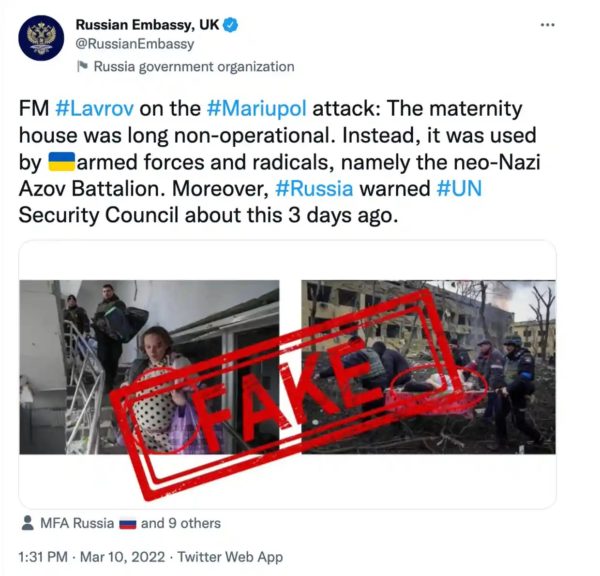
Although the traditional tools are still in use, new developments forced Russian propaganda to adapt to the war.
"We are witnessing the emergence of a new narrative of Russian propaganda - that Ukraine is allegedly conducting large-scale propaganda work to discredit Russia," Poluliahk says. "Literally a few days after the invasion, pseudo-fact-checker projects began to appear en masse in the Russian-language segment of social networks, allegedly to fight Ukrainian propaganda and, in fact, to manipulate and deny the facts of Russia's war crimes in Ukraine."
After the revelation of the Bucha massacre, pseudo-fact-checkers quickly stepped in to "debunk" it. Any footage distortion or optical illusion served as proof of manipulation. One of the most popular "analyses" identified a droplet on the windshield as a dead body's moving arm.
Another focus of pro-Russian "fact-checkers" was seemingly actual misinformation spread in Ukraine’s information space.
However, StopFake.org found little evidence that these fakes have ever circulated in the Ukrainian media segment. This content likely originated on the Russian side, designed to lend credibility to the pro-Russian "fact-checkers."
Clemson University’s Media Forensics Hub and ProPublica identified a number of such examples.
Russian social media accounts posted old footage of fire accidents and claimed they are being used by Ukraine to create fakes. While the videos or pictures were often genuine, they have not been used by the Ukrainian media to depict current events.
Nevertheless, these tactics celebrate success.
"We see that some of their [Russian] 'debunking myths' are becoming virulent and spread in many languages," Poluliakh comments.
Right-wing conspiracies, old and new
Old narratives, tailored for concrete segments of the Western public, have also been brought back to the field.
Putin's laments that the West is trying to "cancel" Russia is simply an allusion to "cancel culture." Moscow has long presented itself as a bulwark against "political correctness" and "woke ideologies," thus courting the Western right-wing and conservatives.
Similarly, weaving Hunter Biden into the "Ukrainian Biolabs" conspiracy was meant to win the sympathies of Donald Trump's supporters. Joe Biden's son is a favorite media "punching bag" of the US’s ex-president.
Once again, this strategy brought fruit, as many right-wing pundits became amplifiers of Russian disinformation. Fox News' Tucker Carlson echoes the Kremlin's claims about Hunter Biden and Ukrainian bioweapons research.

Moscow has cultivated ties with the Western neo-Nazi and neo-fascist groups as well. Anti-semitic conspiracies with Russian footprints that justify the invasion of Ukraine circulate widely on European and American social media.
Such conspiracies seem to go against the official narrative of Ukraine's "de-Nazification" (which is, incidentally, losing popularity with the domestic audience). However, Russian disinformers are no strangers to contradictions, as long as they go unaddressed.
Lavrov's latest attempt to reconcile both narratives led to a humiliating diplomatic incident with Israel, ending with Putin's formal apology.
Russian propaganda for left-wingers during war: Infiltration and diversion
Sympathies towards Putin's regime can be found among the Left as well. Many communist, post-communist, and far-left groups are traditionally friendly toward the Kremlin.
Liberals and progressives might be less inclined to endorse Putinist Russia due to ideological differences. But even they become targets of propaganda, albeit through subtler means.
There are two main pillars of pro-Russian left-wing narratives:
- Nazis controlling Ukraine
- Diverting attention to the West.
The former of these claims have already been widely discussed and debunked, but the latter is worth delving into.
What is Azov Regiment? Honest answers to the most common questions
We can observe at least two related narratives that put the spotlight on the West.
One of them directly blames the US and the EU for the war in Ukraine. This is not merely a product of Russian propaganda. Such an argument is popular even in Western intellectual circles.
In this paradigm, the Euromaidan Revolution was in fact a "Western-backed coup" and "NATO's aggressive expansion" forced Russia to secure its borders. Following this logic, sending arms to Ukraine should be condemned as "fueling the war."
The narrative's other variation is more subtle, as it avoids directly commenting on Ukraine.
Instead, it draws up comparisons to the West's own military actions in Yugoslavia, Iraq, and elsewhere. The aim is not to hold Russia and the United States equally responsible, but to shift the topic of the conversation.
This tactic, dubbed "whataboutism," is so convincing because it operates with real grievances and does not rely on fakes. That is why it is effective even outside traditional pro-Russian audiences.
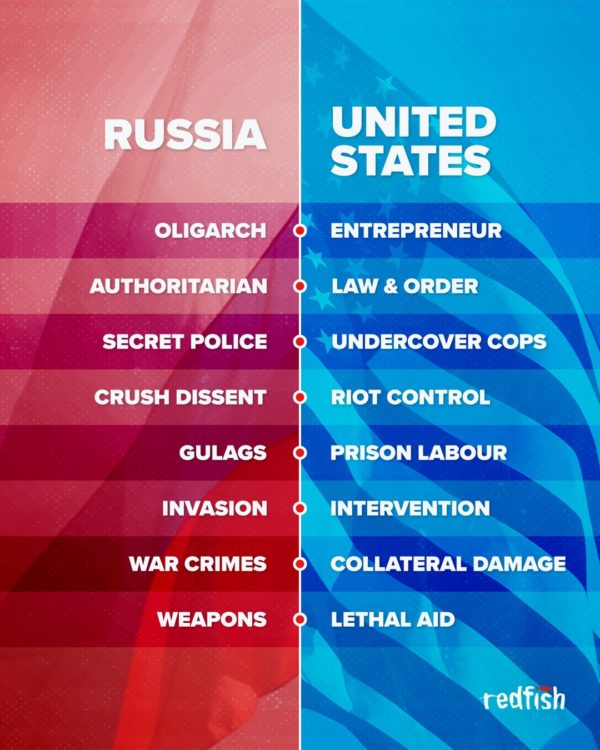
Russian propagandists pose as "independent left-wing journalists" to reach a broader audience. Some of these "media" are run under fake online personas from troll farms. Others, like Redfish Media, are operated by former Russia Today (RT) employees.
If successful, their content gets shared by real journalists and pundits, who unwittingly launder Russian propaganda.
The editorial focus on these projects lies not on Russia or Ukraine but on traditional left-wing topics -- social justice, racism, or liberation of Palestine. The actual pro-Russian messages are mixed in among these topics, posing as "just another" anti-imperialist or anti-war content.
On the day of the invasion, Redfish's Twitter account posted a map showing recent US and Israeli airstrikes in the Middle East, next to the concurrent ones in Ukraine. The accompanying text reminded the readers that war is a tragedy regardless of geography.
That would be difficult to argue with. However, while Redfish repeatedly denounces violence committed by the US and its allies, Russian acts of aggression are left largely unaddressed.
Throughout the conflict, Redfish's authors wrote sparsely about the actual events in Ukraine but commonly reported on European protests against arms supplies. Redfish framed these gatherings as "anti-war protests."

Redfish was eventually labeled by Twitter as Russian state media, while other platforms blocked its accounts. Yet, its followers remain undeterred.
One of Redfish's readers even questions whether its affiliation really undermines its message. In his words, Redfish Media can be seen as "critical, investigative propaganda."
Such a description speaks volumes about the effectiveness of Redfish's methods.
It is important to understand the multifaceted nature of Russian propaganda. Its narratives adapt to particular audiences and react to new events.
Laying these methods bare should help us better distinguish them and to understand the motive behind them.
Russian propaganda is just this -- a weapon. It does not seek to defend ideals or search for truth. Its only aim is to fulfill a political assignment, to sow confusion and strife. As the Russian military invades its neighbor, propaganda works in unison to undermine international support for Ukraine's resistance.
Related:
- A guide to Russian propaganda. Part 2: Whataboutism
- Russian propaganda is a war tool and must be ostracized – military expert
- Russian propaganda escalates, laying ground for nuclear strike
- Babushka Z: Russia’s newest pro-war propaganda poster girl regrets waving red flag
- Russian propaganda TV threatens to invade West, carry out nuclear strike
- Russian propagandists must be tried for inciting genocide and war – international lawyer



